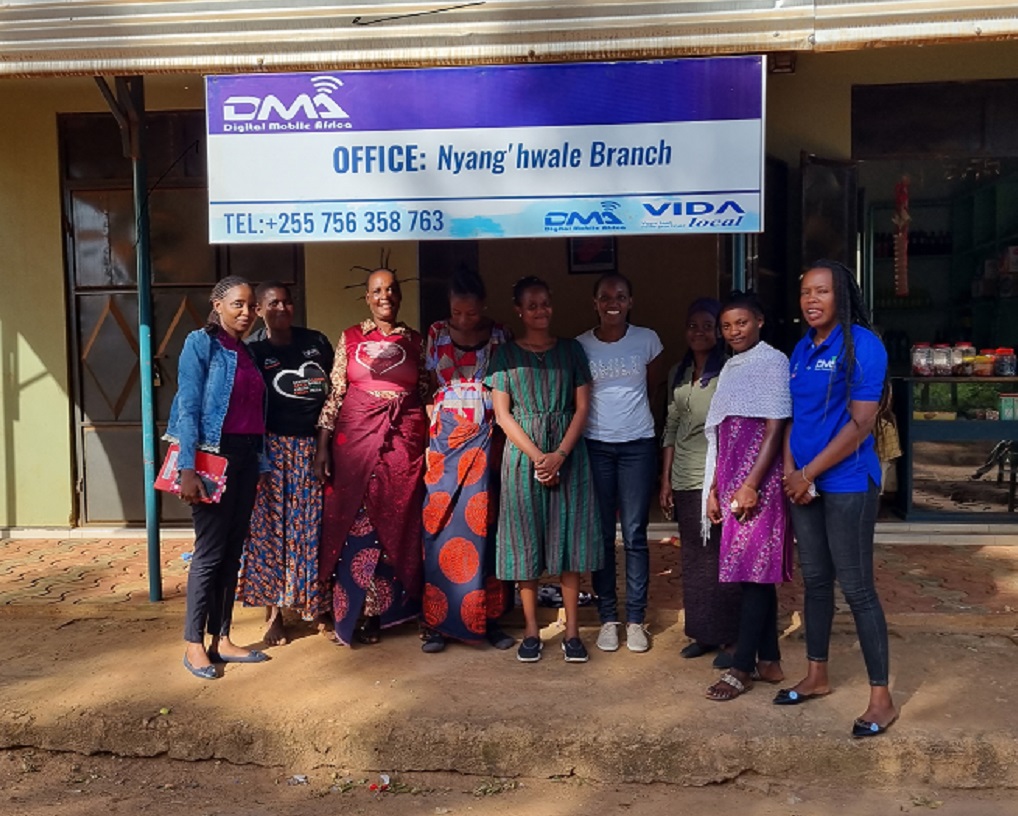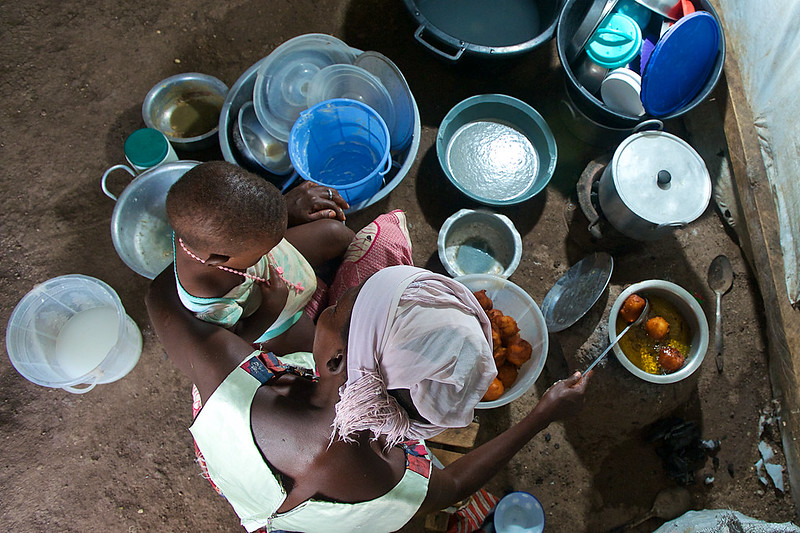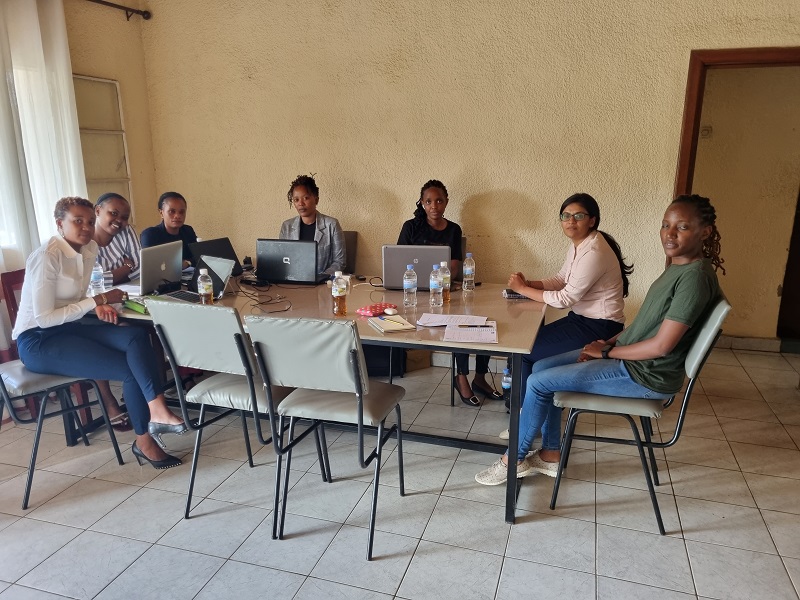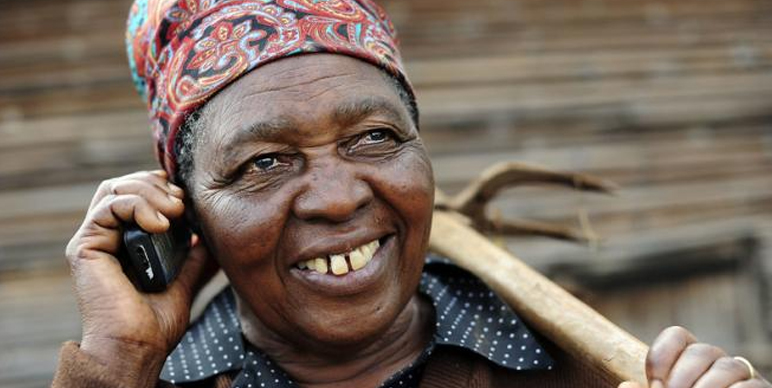
INCLUSIVE VALUE CHAINS: EXPERIENCES OF GENDER MAINSTREAMING
Women’s Economic Empowerment through the reduction of gender inequalities in global value chains is a crucial path to achieving the 2030 Agenda for Sustainable Development Goals, especially SDG 5-Gender Equality. It is estimated that if women are allowed to participate equally and fully in the global value chains, they could contribute up to USD 28 trillion to global GDP annually by 2025.
Despite the commitment and funds channeled into numerous initiatives to get more Women-owned and led Small and Medium Enterprises (WSMEs) into global value chains, the results have been underwhelming. Procurement from WSMEs by businesses across sectors vastly lags that of male-owned and led SMEs. For instance, although one-third of registered SMEs globally are estimated to have been created by women, large corporations and governments spend less than 1% of their procurement budgets on WSMEs, leaving key business and development benefits untapped. A structural transformation in commercial ecosystems is required in order to incorporate WSMEs and other disadvantaged groups in supply chains equitably.
It is in this context that Intellecap and the International Development Research Centre (IDRC) hosted an event, moderated by Amar Gokhale of Intellecap, at the 10th Sankalp Africa Summit. The aim of the session was to share experiences and ways in which different organisations, small and large businesses, public and private, across multiple sectors, can enhance gender considerations in their value chains, with the intent of increasing women’s participation throughout.
Paul Okwi, Senior Programme Specialist, IDRC introduced the session and explained that IDRC focuses on fostering partnerships and generating quality knowledge to create social impact. IDRC funds the GLOW programme, which investigates pathways to achieving SDG 5 by creating gender equality in low carbon economic transitions. Via GLOW, IDRC supports the Intellecap-led project ‘Reorienting the Private Sector to Enable Climate-Smart Agricultural Solutions to Address Gender Inequalities’.
In this project, Intellecap is working with 10 SMEs operating at the intersection of sustainable agriculture/food systems and climate change, to help them mainstream gender considerations in their operations, including in their value chains.

Inclusive value chains through inclusive procurement policies
One of the most effective ways firms can champion diversity, equity and inclusion is to increase their spending with diverse suppliers and vendors in their value chains. For example, Safaricom, a listed Kenyan mobile network that is well known for its invention of the global mobile payment service Mpesa, has incorporated a policy that requires 10% of the organisation’s procurement to be sourced from WSMEs, through its Women in Business initiative.
Agnes Wanjiru, Sustainability Manager, Safaricom explained that the number of women-owned businesses pre-qualified in Safaricom’s procurement has increased from 20 to 245, via this initiative.
Despite the increase, Safaricom’s experience is that WSMEs are concentrated in less profitable sectors that are associated with low spending. This is a consequence of the additional barriers that women face while trying to build and grow a business, such as time constraints: women have competing demands on their time, such as family responsibilities. They also face gender biases arising from cultural constraints, and they lack access to business networks – due to limited access to capital and information.
It is evident that having policies that promote inclusive procurement is a step in the right direction. However, more needs to be done by organisations and actors in commercial ecosystems to address systemic inequalities in value chains. While noting the challenge, Ms Wanjiru mentioned that Safaricom’s initiative has provided useful insights and learnings for the organisation, as well as fostering forums within Safaricom that promote awareness about inclusion. Furthermore, through its sustainability reporting, Safaricom has striven to report on progress in women’s inclusion, irrespective of the small strides achieved thus far.

Inclusive value chains through capacity building
To ensure that WSMEs are able to participate in global supply chains, it is critical to strengthen their capacities on procurement readiness. Sourcing2Equal Kenya is an initiative by IFC that brings together 11 corporate buyers, including Safaricom, to increase access to corporate procurement opportunities for WSMEs. Angela Kariuki, Project Coordinator – Gender and Economic Inclusion Group, IFC noted that the programme is addressing barriers faced by both buyers and WSMEs through two activity streams: a) corporate peer learning on ways to increase sourcing from WSMEs; and b) capacity building of WSMEs on corporate procurement requirements.
WSMEs are provided with technical assistance on formalising their businesses, procurement policies and regulations, contract management, procurement technology, market research and analysis and negotiation skills. With the technical assistance and skills garnered through procurement capacity building programmes, more women entrepreneurs are able to engage more competitively in ‘high spend’ (more lucrative) business categories.
Inclusive value chains through tech-enabled platforms
Technological platforms can play a significant role in encouraging more women entrepreneurs to participate. Platforms provide remote access to procurement opportunities, encouraging women to be economically engaged while working from home. The majority of women work from home as they are the primary caregivers at home.
Online platforms also provide greater transparency in the procurement process, making it easier for women-owned businesses to understand what they need to do in order to succeed. It helps to level the playing field and make it easier for women to compete with larger, more established businesses. By providing a centralised platform where buyers and sellers can connect, procurement platforms create more opportunities for women entrepreneurs and help close the gender gap in procurement. In addition, the platforms help women-owned businesses, which may have previously struggled to gain visibility or access to funding, to connect and showcase their businesses to potential investors.
Data collected through procurement platforms can be useful in tracking progress and identifying areas where further action is needed to address gender inequalities. For instance, Aquarech, a fish farming platform, enables fish farmers, fish feed manufacturers, and fish traders to trade and build trusting long-lasting partnerships. Ithas made significant strides in developing activities along the value chain in Kenya’s aquaculture sector.
Dave Okech, Founder and CEO, Aquarech, noted that through the platform more women fish farmers are able to participate along the value chain. They are able to procure and sell fish products conveniently and access aquaculture knowledge and skills, such as precision fish farming techniques.
Moreover, the platform enables women to participate equally and fairly in the value chain by eliminating fish for sex (FFS) and other forms of discrimination in the aquaculture sector.
Finally, Aquarech uses the information from the platform to better understand and serve the women fish farmers and traders by providing solutions to their challenges.

Inclusive value chains through financial inclusion
A majority of women entrepreneurs disproportionately face barriers to accessing finance, primarily due to lack of collaterals, as a consequence of lack of ownership of land and other fixed assets. Globally, less than 15% of all landholders are women. Additionally, limited financial literacy and limited access to financial education due to societal and cultural norms makes it harder for women to navigate financial systems and secure financing. Furthermore, family responsibilities such as caring for children and elderly family members, prevent them from fully participating in the economy and thus improving their livelihoods.
One of the ways to address financial access barriers faced by women entrepreneurs is by developing financial products tailored specifically for women. In this regard, Jackie Githiga, Business Development Manager, KWFT noted that KWFT, a women-only microfinance bank in Kenya, has been on the forefront of addressing this challenge through providing specialised financial products such as affordable loan financing to women entrepreneurs with limited access to financing.
Through access to affordable financing, women entrepreneurs can participate more fully in the value chain by expanding their product and service offerings and creating more job opportunities. Moreover, through their products and services, women entrepreneurs can bid for procurement opportunities in higher-spending categories.
Finally, the specialised products and services for women enable more women to be included in the financial sector thus enabling researchers to deepen their study, develop a framework for inclusion, innovate new products and services and highlight their successes and challenges, thereby increasing insight on how to address financial access barriers.
In summary
Inclusive value chains are critical in addressing systemic inequalities and leveling the playing field for disadvantaged groups. Both the private and public sectors can adopt policies to ensure diversified and inclusive sourcing. Secondly, governmental support through grants and interventions that support equality, education and awareness for disadvantaged groups such as WSMEs can be ramped up. Finally, increased access to financing by the financial service sector can be promoted. Research institutes can also play an important role by highlighting successes and challenges in the world of business and suggesting possible solutions.





